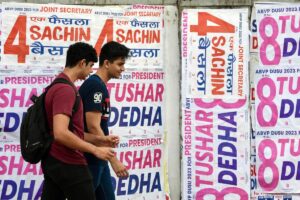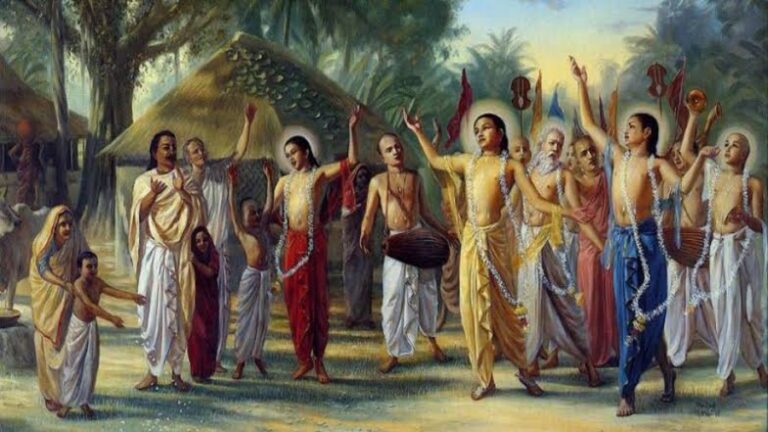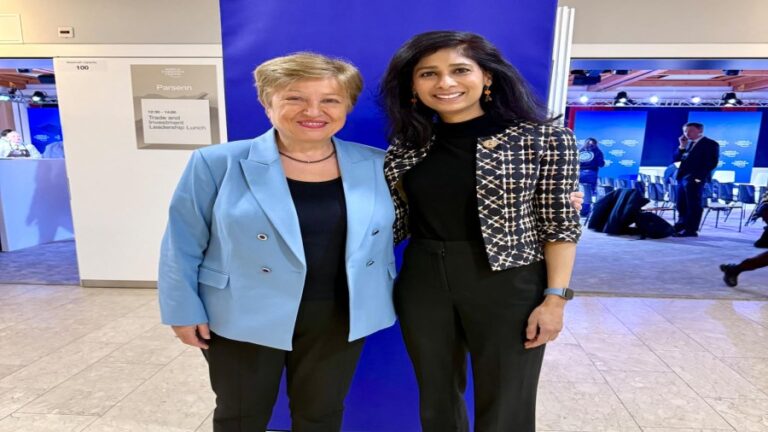
The battle for the Delhi University Students’ Union (DUSU) 2025 is heating up, and it’s no longer just about posters and promises. Instead, this time, the spotlight falls on rules, representation, and resistance. From the Delhi High Court warning candidates against flashy campaigns to Miranda House students rejecting ABVP on their campus, this year’s election has become a clash not only of student parties but also of ideas about money, power, and representation in campus politics.
The Delhi High Court has sent a cautionary message to the candidates contesting for this year’s elections. Specifically, the judges stressed that student leaders must strictly follow the election code and avoid extravagant displays like luxury cars, JCBs, or tractors during campaigns.
The Court heard a petition filed by advocate Prashant Manchanda, who accused candidates of spending crores despite the legal cap of just ₹5,000. Moreover, he presented photographs of rallies where hundreds of bouncers, tractors, and JCBs showered flowers on candidates, mocking the spending limit.
Police and DU Under Fire over DUSU Campaigns
Meanwhile, Delhi Police issued challans for rash driving, deployed 23 traffic officers, and set up a control room to monitor social media. Similarly, DU said it had sent show-cause notices and warning letters to several candidates. Yet, the court found these measures weak and inadequate. Consequently, it ordered both the police and DU to file an action-taken report by September 16.
Amid the high-voltage campaigning, a viral incident at Miranda House, Delhi University’s premier women’s college, grabbed attention. At the same time, many students openly rejected ABVP’s campaign, raising slogans against the group when its activists attempted to canvass inside the campus.
Videos circulating online show students chanting “ABVP go back” and refusing to engage with campaigners. Infact, the episode reflects the growing resistance among some sections of DU’s women students. They argue that ABVP’s positions on gender equality, campus freedom, and women’s safety do not represent them. Therefore, this pushback could seriously affect ABVP’s chances and make the presidential race far more competitive.
Wider Election Context

The DUSU elections will take place on September 18, and officials will count votes on September 19. Altogether, 21 candidates will contest for President, Vice-President, Secretary, and Joint Secretary.
The main student groups in the fray are:
- ABVP (Akhil Bharatiya Vidyarthi Parishad) – aligned with the BJP
- NSUI (National Students’ Union of India) – aligned with the Congress
- Left Alliance (SFI–AISA) – campaigning jointly for inclusivity and social justice
Notably, both NSUI and the Left alliance have fielded women candidates for President. NSUI’s Joslyn Nandita Choudhary has already attracted attention, and many students view this development as a progressive step for gender representation in DU politics and more such as that of:
- Student Issues at the Forefront
- Safety and Freedom
- Affordable fees and better facilities
- Opposition to the National Education Policy (NEP)
- Representation of marginalized and disabled students.
Importantly, campaigns are no longer restricted to posters and rallies. Instead, they increasingly turn to social media content, PR teams, influencer tie-ups, and even AI avatars to connect with the student community. As a result, this digital shift shows how campus politics is adapting to modern methods of persuasion.
Stay updated for more with The World Times.



